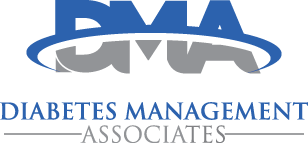Sugar Epidemic
John Yudkin was a British physiologist and nutritionist. He was one of the first scientists to claim that sugar was a major cause of morbidity and heart disease. That was in 1972! In his book, ‘Pure, White and Deadly’, he explains how sugar is killing us and how to stop it. Well, it seems we have not listened to his advice very well. Today we consume more than 152 pounds of sugar in a year!
According to researchers, reducing the sweetener in packaged foods and beverages could prevent more than 2 million strokes, heart attacks and cardiac arrests!
The Many Types of Sugar
Sugar can be divided into nutritive (NS) and non-nutritive sweetener (NNS).
Let’s start with the good stuff. Nutritive sweeteners are natural sugars. They include:
- Sucrose- Scientific name for ‘table sugar. It comes from sugar beets or sugar cane and breaks down into glucose and fructose.
- Glucose- Preferred fuel for the body. It is a monosaccharide or one single unit of sugar and can quickly be absorbed from the gut into the blood stream and on to cells.
- Fructose- The ‘fruit sugar’. Like glucose, it is a monosaccharide and naturally occurs in fruit as well as honey, agave, and most root vegetables.
- Lactose- The ‘milk sugar’. A natural enzyme, lactase breaks down lactose into glucose and galactose.
Non-Nutritive Sweeteners are chemical. They have no health benefit or measurable nutrition.
NNS include:
- Saccharin- Sweet ‘N Low®, Sweet Twin® and Sugar Twin
- Aspartame- Equal® or NutraSweet®
- acesulfame potassium- Sunett® and Sweet One®
- Sucralose- Splenda® and Equal Sucralose
- Stevia- Truvia®, Stevia in the Raw®, SweetLeaf® Sweet Drops™, Sun Crystals® and PureVia®
According to Harvard Health, NNS consumption is associated with 36% greater risk for metabolic syndrome and a 67% increased risk for type 2 diabetes.
Saccharin was banned in 1977 due to causing bladder cancer in rats. Further research did not find a risk in humans, so saccharin was reclassified as ‘possibly cancerous to humans”.
James Oschman in 2015 published an article in the Journal of Inflammation Research concluding that even one sugary soft drink per day has been linked to an increase in risk of 11 different cancers, including breast, kidney, liver, colorectal, and pancreatic cancer
Where does all that sugar go?
Simple sugar found in junk food, colas, juices, and processed foods is quickly absorbed into the bloodstream raising our blood sugar levels. The body tries to fix this by releasing insulin. Blood glucose levels decline fast and sometimes get low. Many hormones kick in trying to avoid hypoglycemia (low glucose) including Ghrelin. This ‘hunger hormone’ makes you hungry again in a short period of time. And the cycle goes on and on.
The liver also helps remove sugar from our blood stream by turning it into triglycerides (fat) which are then stored in the liver. The problem is that the liver is not a storage bin. We need a little stored up fat but too much can lead to liver disease and failure. In the past, the number one cause for liver failure was alcoholism. Today it is SUGAR!
Breaking the Sugar Addiction
Non-nutritive sweeteners are very addictive and should be avoided. Avoid fruit juice which often has added sugar and missing the fiber. Make your own smoothies or juice from fresh or frozen fruits and vegetables. If your food is in a package, read the food labels and avoid ‘added sugar’.
The best way is to eat your sugar is from natural sources such as fruits and vegetables. It is fine to eat table sugar, agave, and honey even if you are a diabetic. All sugar should be small portions.
Eating real food with no added sugar or NNS will break the sugar addiction cycle and the cravings slowly go away. Over time, the total food consumption lessens. Grocery bills go down and health improved. All money savers!!
Dr. Julie Wood is a Nurse Practitioner and has been serving the Middle Tennessee area for more than 30 years, specializing in adults with obesity, prediabetes and diabetes. Office is located at 401 First Avenue, Mt. Pleasant, TN and statewide with telehealth. Dr. Wood can be reached at 931-325-5560, www.diabetesmgtassociates.com, info@diabetesmgtassociates.com.
Articles are meant to be informative and should never replace the advice of your health care provider.
9/20/21
